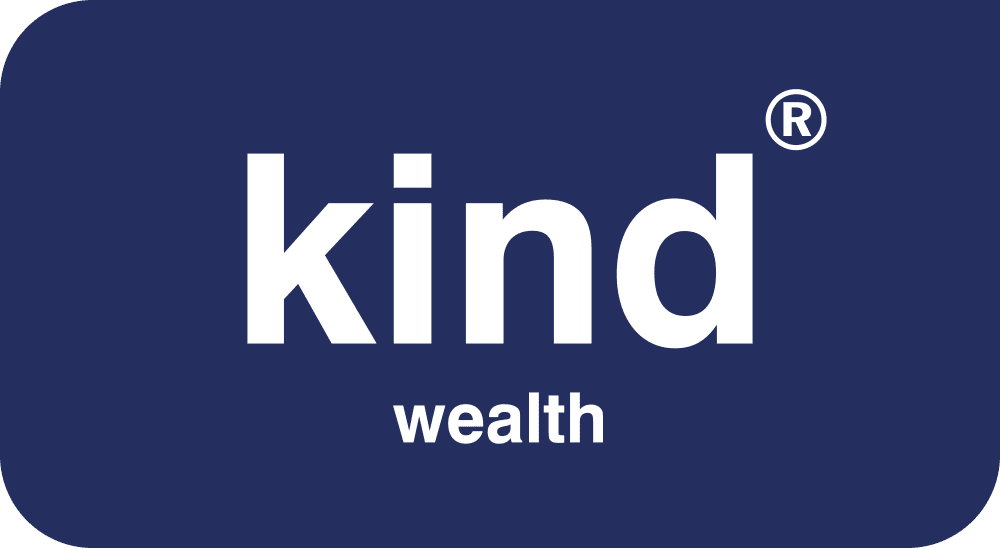Your financial wellbeing hub
By pulling together during the pandemic, we have managed to overcome many challenges and get through an extraordinarily difficult period of time. As we emerge into the post-COVID economy, we face a different set of challenges which, in their own way, appear no less daunting. One thing remains constant – we’re still here, by your side, offering support in uncertain times.
New economic challenges
Although the economy did begin a tentative recovery last year and into the early part of 2022, it’s fair to say the outlook has become increasingly challenging in recent months. Our spending power has been curtailed by inflation and, with energy bills rising, the cost-of-living squeeze looks set to continue for now. Higher-than-expected inflation has also triggered a rise in interest rates, while fallout from the war in Ukraine adds to a cocktail of economic uncertainties.
Planning is key
No one is immune from these difficulties; while some will struggle more than others, we will all be impacted to some degree. Times like these serve to emphasise why people seek professional financial advice in the first place. There will inevitably be economic downturns but having a sound, structured plan helps to ensure our financial goals and aspirations are not derailed when that occurs.
Financial wellbeing
Sticking to your financial plan is a good way to protect your financial wellbeing. It’s therefore essential to try to maintain any ongoing commitments such as pension contributions, protection premiums and regular savings policies if you possibly can.
It’s also vitally important to keep talking. We’re here for both you and your family; ensuring your financial wellbeing is, and always will be, our prime concern.
Pensions round-up
Some positive news on pensions – research1 indicates that UK consumers are keen to take a greater role in preparing for their retirement and are improving their pension knowledge too.
A Link Group survey suggests pensions industry bodies have had some success in enhancing pensions knowledge and the importance of retirement planning. Nearly four out of five consumers ‘understand’ pensions, with 18 to 34-year-olds displaying higher levels of knowledge than other age groups. Almost six out of ten survey respondents acknowledge they should take more responsibility to guarantee they have a good retirement income.
On the hunt for that lost pension?
Other research2 highlights that large sums of money still languish in ‘lost’ pensions, with estimates suggesting over £19bn is sat in lost pension pots in the UK; likely to be the by-product of people changing jobs and not keeping track of contributions made with previous employers. To help employees track down their lost pensions, the government runs a free pension tracing service www.gov.uk/find-pension-contact-details. If you’ve worked for various employers over the years it will be worth checking to see if you can be reunited with a lost pension. With National Pension Tracing Day at the end of October, the message is, ‘a little bit of effort now – and it isn’t complicated – could be worth thousands in the future.’ The #GreatPensionTreasureHunt is on.
Take heed
Experts have warned about potential pension-related problems as the cost-of-living crisis bites. There are warnings for the over- 55s not to be tempted to raid their pension pots in response to the cost-of-living squeeze. The overriding concern is that if people decide to withdraw lump sums or start taking an income sooner than planned, it will leave them with less income in the future. Reducing workplace pension contributions as a knee-jerk response to the cost-of-living crisis is also a concern.
1Link Group, 2022, 2ABI, 2022
Almost six out of ten survey respondents acknowledge they should take more responsibility to guarantee they have a good retirement income.
IHT receipts – an upward trend
Latest figures from HM Revenue & Customs (HMRC) show that Inheritance Tax (IHT) receipts totalled £2.9bn between April and August 2022, an increase of 11% (£300m) compared to the same period in 2021. Receipts are now at their highest level on record, with receipts for August alone totalling £576m. This means that all five months in the current tax year have seen receipts surpass half a billion pounds for the first time ever.
Quilter Tax and Financial Planning Expert Shaun Moore said IHT is proving to be “very lucrative” for the Treasury these days, adding, “In years gone by, although universally hated, IHT was something only the very wealthy suffered. However, now partly because of soaring property prices more and more people are getting caught in the IHT net.” It is worth seeking professional financial advice to ensure you understand your estate and make the most of your allowances to help mitigate your IHT bill where possible.
Tax treatment varies according to individual circumstances and is subject to change.
Steering you through challenging waters
Even the most experienced investors are likely to find the current investment environment a challenge, particularly when considering the uncertainties of the post- COVID economy which are so fundamentally different to those faced during the last two years. Opportunities, however, are still available to investors who can steer a safe passage through choppy waters.
One look at the latest economic forecasts released by the International Monetary Fund (IMF) gives a strong hint of the challenges facing investors. The international soothsayer described the outlook as ‘gloomy and more uncertain’, reducing its global growth forecast to 3.2% this year and 2.9% in 2023, downgrades of 0.4 and 0.7 percentage points from its last predictions in April.
Risks
The IMF noted several shocks hitting a world economy already weakened by the pandemic. These include higher-than-expected inflation worldwide which is triggering tighter financial conditions; a worse-than-anticipated slowdown in China, and fallout from the war in Ukraine. The IMF also stressed that risks are ‘overwhelmingly tilted to the downside.’
But opportunities remain
This economic sea-change is a serious challenge to investors. However, while managing portfolios in a high-inflation environment may require a change in course, there are still opportunities to be had. In addition, as has been seen with the pandemic, no factor that affects stock markets lasts forever, so it’s vital to keep a long-term view to negate the risk of impulsive short-term decision making. If you want to take stock of your investments, we’ll be happy to help steer you through any troubled waters ahead.
The value of investments and the income they produce can fall as well as rise. You may get back less than you invested.
Intergenerational financial planning – a growing need
With the largest ever intergenerational passing of wealth projected over the next few decades, the need for inheritance advice has never been greater. Intergenerational planning can also help with more immediate financial needs, particularly when generations work together to find solutions that support the whole family both now and in the future.
Currently, financial pressures are proving to be a major challenge across the generations. The cost-of-living squeeze, though, is not only impacting people’s current spending power but also their future decision-making in key areas such as housing, private education or university.
A balancing act
Many families are now adopting integrated strategies, especially in relation to gifting money, to address imminent financial challenges. The aim of reducing future Inheritance Tax (IHT) liabilities inevitably remains at the heart of intergenerational planning decisions, coupled with the growing necessity to balance both today’s and tomorrow’s needs, resulting in the current focus shifting to support children and grandchildren now.
Getting the generations involved
Intergenerational planning tends to be most effective when plans are not just focused on those who currently hold wealth. While funding a comfortable retirement and quality of care for the ‘caretaker’ generations remain fundamental elements of intergenerational planning, support for younger generations and ensuring wealth passes efficiently to the right individuals at the right time have become increasingly important.
Encouraging conversations
Sharing a financial adviser within families has become increasingly commonplace; offering significant benefits, particularly when it comes to joining up a whole family’s needs with inheritance and gifting strategies, while treating all family members fairly.
If your family needs help with any aspect of intergenerational planning, we’ll be happy to assist by encouraging more open financial conversations across the generations.
Pausing pensions could be costly
Analysis3 has revealed that stopping or reducing pension contributions, even for a relatively short time such as a year, can have a significant impact on your final pension pot, with savers potentially being thousands of pounds less well off in retirement.
Choosing how to cut back
Almost all (93%) of those who responded to the analysts’ survey said they are feeling the impact of increasing costs and inflation. A further 77% expect to have to make cutbacks on saving or spending. However, an encouragingly low figure of 6% said they planned to reduce their pension contributions.
Thinking of the long term
Whilst it might seem tempting to give up or pause your pension contributions, it’s important to consider the impact any breaks in contributions would have on your retirement pot.
Almost all (93%) of those who responded to the analysts’ survey said they are feeling the impact of increasing costs and inflation.
3Standard Life, 2022
IHT loophole worth knowing
In current market conditions, many bereaved people are finding that the investments they inherited have dropped in value. In a little known loophole known as IHT share loss relief, it may be possible to claim a tax rebate when certain qualifying investments are sold at a loss.
However, strict rules, criteria and exemptions apply. For example, to be eligible for the relief, the sale of the qualifying investment (shares listed on a recognised stock exchange excluding AIM, government bonds and/or holdings in investment funds) must be within 12 months of the date of death. Interestingly, few people reclaim the overpaid tax, with just 1,640 taxpayers a year on average (between 2014 and 2019) applying for refunds4. Tax treatment varies according to individual circumstances and is subject to change.
4FoI request Boodle Hatfield, 2022
Helping family with living legacies
Rather than focusing on inheritance as the best way to pass on wealth, over-55s are increasingly looking to help their families out financially during their lifetimes. This trend towards ‘living legacies’ has been revealed in recent research5 and has been in part due to increased life expectancy pushing up the average age at which younger generations inherit from their parents. People born in the 1980s are now predicted to receive their inheritance at age 64 on average, compared to 58 for those born in the 1960s.
The fear of running out of money during retirement has previously prevented many older people from offering financial support during their lifetime. This concern appears to be lessening, however, with a third of respondents to the research saying they’d be unwilling to help a family member onto the property ladder without knowing how much they’d need in retirement – compared to half of respondents to the same survey in 2016.
Aviva’s Matt McGill commented,
“This increasing tendency towards considering helping out now rather than beneficiaries receiving an inheritance after death is perhaps a reflection of the turbulence and uncertainty that everyone has been through since we previously ran our survey in 2016, and which shows no sign of diminishing. Along with the hardship people have faced, it’s also been a time of reflection for many and this could have included a resolution to live more for the moment and help family and loved ones now.”
5Aviva, 2022
People born in the 1980s are now predicted to receive their inheritance at age 64 on average, compared to 58 for those born in the 1960s.
Learning to control your investment emotions
If you’re an investor, it can also be challenging to keep your emotions in check when there’s so much economic and geopolitical noise being reported on a daily basis.
It’s highly unlikely that Rudyard Kipling was thinking about investments when he penned his famous poem ‘If’, but his words will resonate with investors. Even for experienced investors, the current investment landscape presents challenges, but those who can keep their head when all about are losing theirs have the best chance of success. Remember that market volatility is normal and investors who hold a well-diversified, risk-appropriate portfolio and stay focused on their long-term objectives and aspirations are well equipped.
Clarity affords focus
Although plans may need to be adapted from time to time to take account of changes in individual circumstances or investment goals, having a well-thought-out strategy helps investors deal with unexpected events and remain calm when markets become turbulent. Setting clear goals and developing a corresponding plan to achieve them is fundamental.
While it is easy to say that the nature of investing dictates that the value of investments can fall as well as rise, it is challenging for investors to see the value of their portfolios drop during periods of market weakness. Being confident in your plans, staying the course, maintaining a long-term outlook and avoiding knee-jerk reactions are imperative.
The value of investments and the income they produce can fall as well as rise. You may get back less than you invested.
Looking to retire early?
Are you pondering early retirement? If so, it may seem like an enticing prospect, but it certainly bears thinking about.
Ask yourself these vital questions:
Concerns over later life poverty
One primary consideration needs to be the financial impact of accessing your pension too early. Research6 shows that doing so before reaching State Pension age could reduce your pot by 59% on average.
Two thirds of people aged 50 to 70 who quit work or lost their job during the pandemic left the workforce earlier than expected7, meaning they may have insufficient funds for a longer-than-anticipated retirement. Those who now want to reenter the workforce are finding it difficult to get rehired. According to research from the Centre for Ageing Better, unemployed over-50s are twice as likely to be out of work for 12 months or more than their younger counterparts.
Plenty to think about
Before acting, it is always a good idea to take financial advice. To carefully consider all of your options, whatever your goals for retirement, we’re here to help you get into the best possible financial position for later life.
6Canada Life, 2022, 7ONS, 2022
Do you have enough in your pension pot to enjoy the lifestyle you want?
Important information
We have updated our Privacy Policy to better explain how we keep and use your information to profile groups based on factors like interests, age, location and more, so we can better understand our customers, to adapt and improve our products and services. To find out more, please read our Privacy Policy online.
It is important to take professional advice before making any decision relating to your personal finances. Information within this document is based on our current understanding and can be subject to change without notice and the accuracy and completeness of the information cannot be guaranteed. It does not provide individual tailored investment advice and is for guidance only. Some rules may vary in different parts of the UK.



